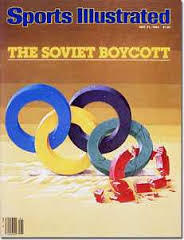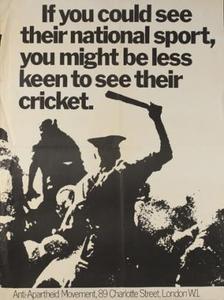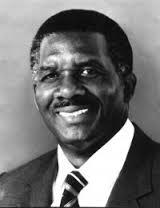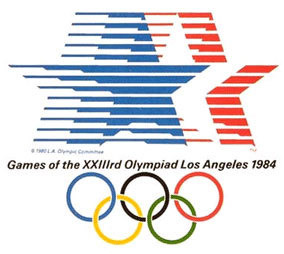Note: Our accounts contain the personal recollections and opinions of the individual interviewed. The views expressed should not be considered official statements of the U.S. government or the Association for Diplomatic Studies and Training. ADST conducts oral history interviews with retired U.S. diplomats, and uses their accounts to form narratives around specific events or concepts, in order to further the study of American diplomatic history and provide the historical perspective of those directly involved.
Sport boycotts have been effective measures for countries to express disdain and condemnation for the actions of another. In the last half of the 20th Century, countries boycotted as a response to apartheid policies in South Africa during the 1970s and 80s; the USSR's 1979 invasion of Afghanistan, which led to the boycott of the 1980 Olympics in Moscow and the subsequent USSR boycott of the 1984 Olympics in Los Angeles.
During apartheid, South Africa was excluded from several international sports competitions, dating from the 1964 Summer Olympics in Tokyo. This ban lasted until 1992, when South Africa was welcomed back at the 1992 Olympics in Barcelona. In 1980, after the Soviet Union invaded Afghanistan, President Jimmy Carter ordered a boycott of the 1980 Summer Olympics in Moscow. The U.S.'s full-court diplomatic press resulted in only 80 countries participating. Four years later, the Soviet Union and their allies retaliated by boycotting the 1984 Summer Olympics in Los Angeles, citing a lack of security for their athletes. Instead, they formed their own sporting event called the Friendship Games, which was attended by over 50 countries, including some reserve teams that didn't qualify for the games in Los Angeles. This Moment was compiled from interviews by ADST with Thomas N. Hull III (interviewed beginning in January 2010), Assistant Cultural Affairs Officer in Pretoria, South Africa from 1978-1980; Peter Eicher (May 2007), Political Officer in Cape Town and Pretoria from 1976-1978; Thompson Buchanan (March 1996), Consul General in Leningrad from 1977-1980; John Bushnell (December 1997), Deputy Assistant Secretary in the American Republics Affairs Bureau (ARA) from 1977-1982; and John W. Kimball (January 2012), the International Conferences Director for the International Organizations Bureau (IO) at the State Department from 1980-1982.
This Moment was compiled from interviews by ADST with Thomas N. Hull III (interviewed beginning in January 2010), Assistant Cultural Affairs Officer in Pretoria, South Africa from 1978-1980; Peter Eicher (May 2007), Political Officer in Cape Town and Pretoria from 1976-1978; Thompson Buchanan (March 1996), Consul General in Leningrad from 1977-1980; John Bushnell (December 1997), Deputy Assistant Secretary in the American Republics Affairs Bureau (ARA) from 1977-1982; and John W. Kimball (January 2012), the International Conferences Director for the International Organizations Bureau (IO) at the State Department from 1980-1982.
HULL: In South Africa I was always in favor of sanctions, not because they could be effective, but because they were the morally right thing to do.
But there was one aspect that I always felt would be effective in South Africa, and that was sports boycotts and sanctions on international participation in sports, because the South African Afrikaners and British alike were fanatics about sports.
That was the one thing that would really affect the population negatively in terms of their support for the government and their support for apartheid.
They really felt the burden of exclusion that came from a sports boycott, whereas they could maintain their lifestyles pretty much with other types of sanctions simply by adapting.
EICHER: Because of apartheid, they were already a bit of a pariah and there were various kinds of rather mild sanctions that were imposed on South Africa, which increased during the time I was there. The sanctions included an arms embargo, which resulted in the South Africans developing their own quite effective arms industry....
There was also a sports embargo, at least an informal one, of countries refusing to invite South African teams or to visit South Africa, because South African teams were segregated. Interestingly, this seemed to bother the South Africans the most because they were a very sporting nation and couldn't stand the idea that their teams were not able to compete internationally.
Interestingly, this seemed to bother the South Africans the most because they were a very sporting nation and couldn't stand the idea that their teams were not able to compete internationally.
In fact, one of the first thing to be integrated by the government was the international sporting teams, in hopes of getting some teams to play internationally. Occasionally, they would find an international team willing to come to South Africa and whenever they did, it was a big deal for them.
I remember some confusion when the New Zealand "All Blacks" Rugby Team came to South Africa. The "All Blacks" got their name because they wore black uniforms, not because there were any black members of the team. The visit prompted many countries around the world to start boycotting New Zealand sports until there was some kind of an apology over the visit.
BUCHANAN: I had gone up to Moscow and we had all discussed with Ambassador Watson and particularly Mark Garrison, the DCM [Deputy Chief of Mission], what should be our reaction.One of the proposals which we made strongly against our personal self-interest -- because all of us were looking forward to seeing the Olympics -- was that we should boycott the Olympics because we knew how important they were psychologically to the Russians.
All of these measures were announced: the trade cut-off, boycott, etc. I had a cocktail party and very few people came. But this Russian lady came, despite bad health. She spoke to me privately, virtually in tears, saying, "What do you think you are doing? When you push the bear in the corner, he will fight back." She seemed genuinely upset and quite frightened of where the confrontation would lead.
I still believe that it was a genuine response and not a KGB-orchestrated scene, but who knows? In fact, everyone was upset, and nobody was more upset than all the Intourist guides, because suddenly there would be very few....Our boycott meant that they weren't going to meet any Americans....
President Carter's decision has certainly been much criticized, with hindsight, notably his embargo on grain shipments to Russia, perceived as an inequitable burden on the American farmers.
Others have attacked the mixing of sport and politics. But I still think that our boycott of the Olympics served its purpose to underscore the inadmissibility of a great power invading its neighbor.
BUSHNELL: One of the toughest and longest campaigns was the Olympic boycott. A few countries supported us right away, mainly countries such as Nicaragua and Paraguay ruled by anticommunist strongmen who did not care much about the Olympics and wanted to court favor in Washington. Many countries argued that their Olympic committees were private and they did not control them.
However, our research identified that many countries gave large amounts of government money to fund Olympic participation. This campaign went on for some months and involved a much more government-wide effort than the usual ARA campaign.
When a Latin American ambassador in Washington or a visiting senior official from a country which did not yet support the boycott asked to see [National Security Adviser] Zbigniew Brzezinski or some other senior official including the Secretary of State or Assistant Secretary Vaky, the official would be given a brief indicating what that country had said about the boycott and suggesting arguments to counter their points.
After the meeting we did a separate cable on the Olympic aspect indicating what the visiting official had said and suggesting arguments for our embassy to use in following up. At the beginning there had been group sessions with the ambassadors on Afghanistan and the policies in reaction to the invasion conducted by senior officials.
A series of cables had gone to all embassies to make demarches, and, in our usual way, ARA sent individual cables to many of our countries. As a few Latin countries agreed to boycott, we sent follow-up cables to our embassies in countries which could use this information as the basis for another, maybe higher level, approach. Our desk officers and country directors were instructed to raise the Olympic boycott at least once a week in their contacts with the local embassy. I don't think any Latin American country had any doubts about the strong feelings behind the U.S. position.... Secretary [of State Cyrus] Vance asked us to make a further effort to get at least a couple more to boycott. I forget what other countries we were concentrating on, but one was the Bahamas.We had made our usual efforts, but we had thought the British would bring this country, fully independent only since 1973, on board; it was not happening.
Secretary [of State Cyrus] Vance asked us to make a further effort to get at least a couple more to boycott. I forget what other countries we were concentrating on, but one was the Bahamas.We had made our usual efforts, but we had thought the British would bring this country, fully independent only since 1973, on board; it was not happening.
Someone suggested I go to see the Prime Minister on this issue to show how serious we were.Prime Minister Lynden Pindling was in many ways the father of this young country; he had led the government which had full internal powers for several years before independence, bringing black majority rule to a country long ruled by whites.
However, he was widely believed to be corrupt in many ways; DEA [Drug Enforcement Agency] had even approach me about catching him in a sting in Florida when he came to visit his dentist....Pindling...invited us for lunch with him and his key cabinet. I believe the Caribbean Country Director went with me and we caught an early flight to Miami with a connection to Nassau....
As dessert was served, I told the Prime Minister my job was to convince him to boycott the Summer Olympics in Moscow. I said I knew it would be hard as the Olympic Committee in his country was private, although quite a bit of public money financed participation in one way or another.I said I also knew the Prime Minister had lots of powers of persuasion in his country. If he really set his mind to it, about anything could be done, good or bad. I said President Carter had not asked him to do anything else, but this issue was very important to our President.
If many countries do not follow our boycott, it appears that our President does not have much influence around the world. Moreover, this kind of Russian behavior was unacceptable. If the Afghanistan situation does not cause a strong reaction from the free world, when these armies start marching who knows where they will go next?...
I said I had not come to argue the merits of the boycott or other parts of the Afghanistan policy with him but to ask him to support President Carter as the leader of the free world and to let him know that we would take what he does on this matter into consideration as various things, perhaps involving him personally, come up over the next months.
He paused for a long time. Notably, he did not seem to consult with or even look at any of his cabinet.Then he said, "What you mean is that you really are calling for my support. It's like playing on an American football team. President Carter is the quarterback, and I am a lowly linesman. When the quarterback calls an absolutely asshole play and my job is to block right, I block right as hard as I can if I am a good member of the team."
I said, "That's right, and if you make a good block, I won't tell the quarterback what you think of his playcalling."
He promised a perfect block and asked for our cooperation on how and when the Bahamas boycott would be announced and help on those other matters that might come up in the future. I was back in Washington for a late dinner. KIMBALL: I have always been irked by the fact that Peter Ueberroth, President of the Los Angeles Olympic Organizing Committee, who did a superb job in LA, chose to write a book afterwards that in effect said State Department ineptitude caused the Soviets to boycott the Olympics.
The White House - [Deputy Chief of Staff] Michael Deaver in person -- made it clear to all of us that the 1984 Olympics would not be a political football. Moreover, nobody needed to be told that a former Governor of California was going to countenance anything that would hurt the Los Angeles effort. U.S. policy was to facilitate the entry of all Olympic participants, meaning Soviets too, while we expected all would follow Olympic rules and respect those of the host country. We told the Soviets they could use Aeroflot charters to fly athletes and staff to LA, even via Cuba if they preferred. We only asked they request normal flight clearance.
U.S. policy was to facilitate the entry of all Olympic participants, meaning Soviets too, while we expected all would follow Olympic rules and respect those of the host country. We told the Soviets they could use Aeroflot charters to fly athletes and staff to LA, even via Cuba if they preferred. We only asked they request normal flight clearance.
We signaled agreement for a Soviet cruise ship serving ostensibly as a dormitory to dock in Long Beach harbor, even though some saw this Soviet request as a ploy to eavesdrop on U.S. defense activities in the LA area.
We agreed to consider a Soviet request for a special Olympics diplomatic attaché, even though no other country had made such a request. We had told the Soviets we would approve a "suitable" individual, but also that a name they had floated -- a known KGB operative -- was not within our definition of "suitable".
We were also prepared to waive travel restrictions on Soviet officials resident in the U.S. (restrictions imposed only because of comparable Soviet restrictions on our diplomats.) Protective security arrangements in LA were very well-organized through effective cooperation among federal, state, and local law enforcement agencies and the Soviet officials knew it.
Their professed fear of anti-Soviet threats were a pretext, not a cause, for their eventual boycott. I have no evidence, but I'm sure they had made a decision early in the game to boycott in retaliation for our boycott of Moscow in 1980.
